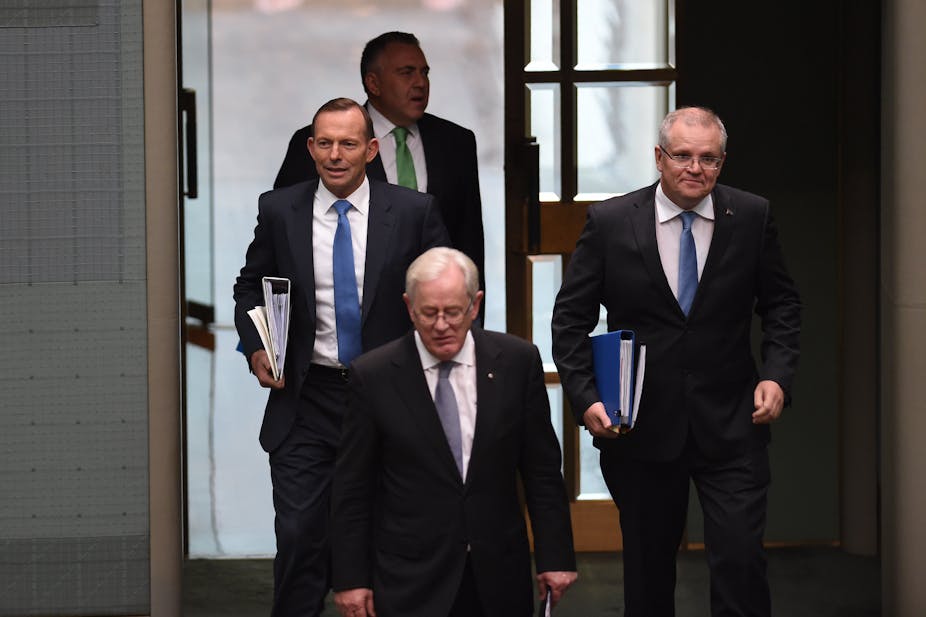Recent comments from the Business Council of Australia reflect a shift in the public debate about reform and the national agenda. Specifically, BCA President Catherine Livingstone has called for wide consultation on the growing list of ‘wicked problems’ that require more than budgetary measures to resolve.
By definition, this approach requires a multi-stakeholder process, perhaps utilising some of the strategies for deliberative or new democracy.
However, therein lies the problem.
Collaboration decision-making requires high levels of public confidence that the political and business leaders who seek our input are competent and trustworthy.
Unhappily, report after report suggests that this is not the case.
The latest of these is the Swinburne Leadership Survey, released today. The survey backs up previous reports of a widely perceived national leadership crisis.
Importantly, unlike most leadership surveys, the Swinburne Leadership Survey extends beyond politicians to assess business, trade union, religious and community leaders. It also penetrates more deeply into why we feel the way we do about our leaders, and explores the kind of leadership we would like to have.
Political leaders were the least trusted of the five sectors of leaders. Nearly two-thirds of respondents (59%) reported that political leaders were “not very” or “not at all” trustworthy. Business and trade union leaders were not far behind.
Similarly, political leaders were regarded as the least competent of the five sectors while community leaders were judged the most competent, with business leaders close behind them.

That only community leaders were regarded as highly trustworthy and competent gives a clue to where consultation must begin if consultation and collaboration is to be seen as transparent and genuine.

Community leaders were also perceived as most concerned with the public interest and the well-being of future generations of Australians.
These findings should give all categories of leaders plenty of food for thought.
The challenge for political leaders is profound.
The challenge for business leaders is quite different. Few Australians doubt their competence. However, their perceived disregard of the wider public good reflects a credibility challenge that cannot be solved simply by calling for wider consultation.
The positive perceptions of community leaders is a clue to the values that all other kinds of leaders - business, political, religious and union - need to display if they want to be trusted partners in collaborative problem-solving.
The strength of these findings also gives credence to a further major conclusion — that Australians do not believe that national political leaders are terribly concerned about the Greater Good.
This part of the survey ventured into a new area of research and required us to develop a new measure called an Index of Leadership for the Greater Good. This part of the survey was conducted in relation to political leaders only and assessed the quality of their stewardship of our public goods and common-pool resources.
The significance of the index is that it reveals the reasons, at least in part, why Australians perceive political leaders so negatively. It also tells us the aspects of Leadership for the Greater Good where more work needs to be done by them.
Put differently, the Index reveals something of the qualities of leadership that Australians value and how we would like national political leaders to act.
Specifically, Australians value leaders whom they believe are committed to:
making decisions that are in the interests of all Australians and not letting the unintended consequences of any policy decision to unfairly impact on any one group;
caring for the long-term future of the country, including the needs of future generations of Australians, not just their chances of re-election; and at the same time;
maintaining the social, economic and environmental systems — the ‘commons’ — upon which community well-being depends.
The problems society, its leaders, and their followers face today are complex, difficult to define, and constantly changing. They are what we call “wicked problems” and need to be approached in a spirit of collaboration and experimentation, knowing that today’s solution could very well be tomorrow’s new problem.
Adaptive leadership is thus called for – and this requires the openness and flexibility that underpin genuine stakeholder participation.
This inaugural version of the Swinburne Leadership Survey provides a benchmark for Australian perceptions in late 2014, when the survey was conducted.
Future editions will reveal whether business and political leaders have convinced us they are committed to the greater good or whether they remain mired in business- and politics-as-usual.

